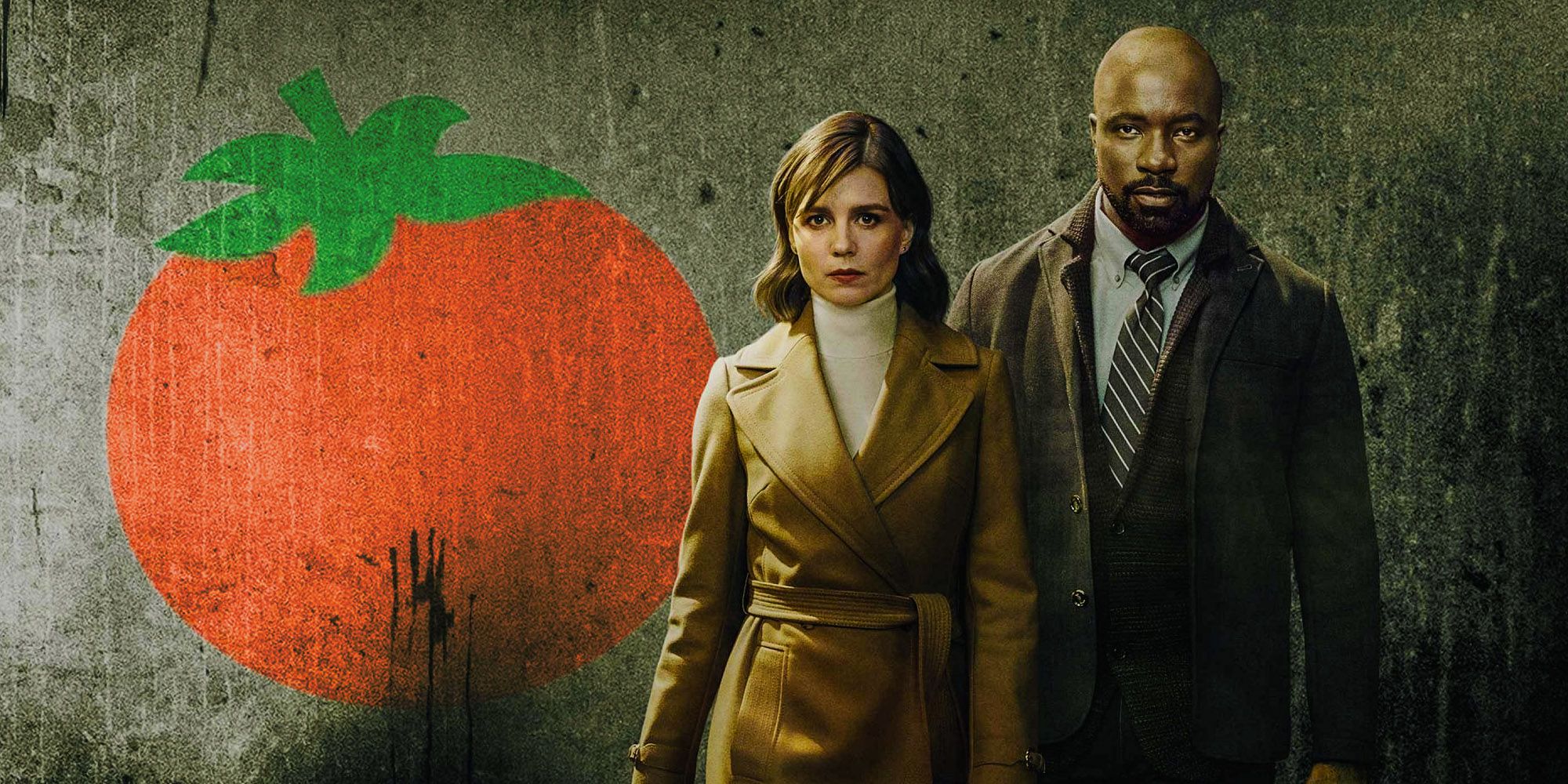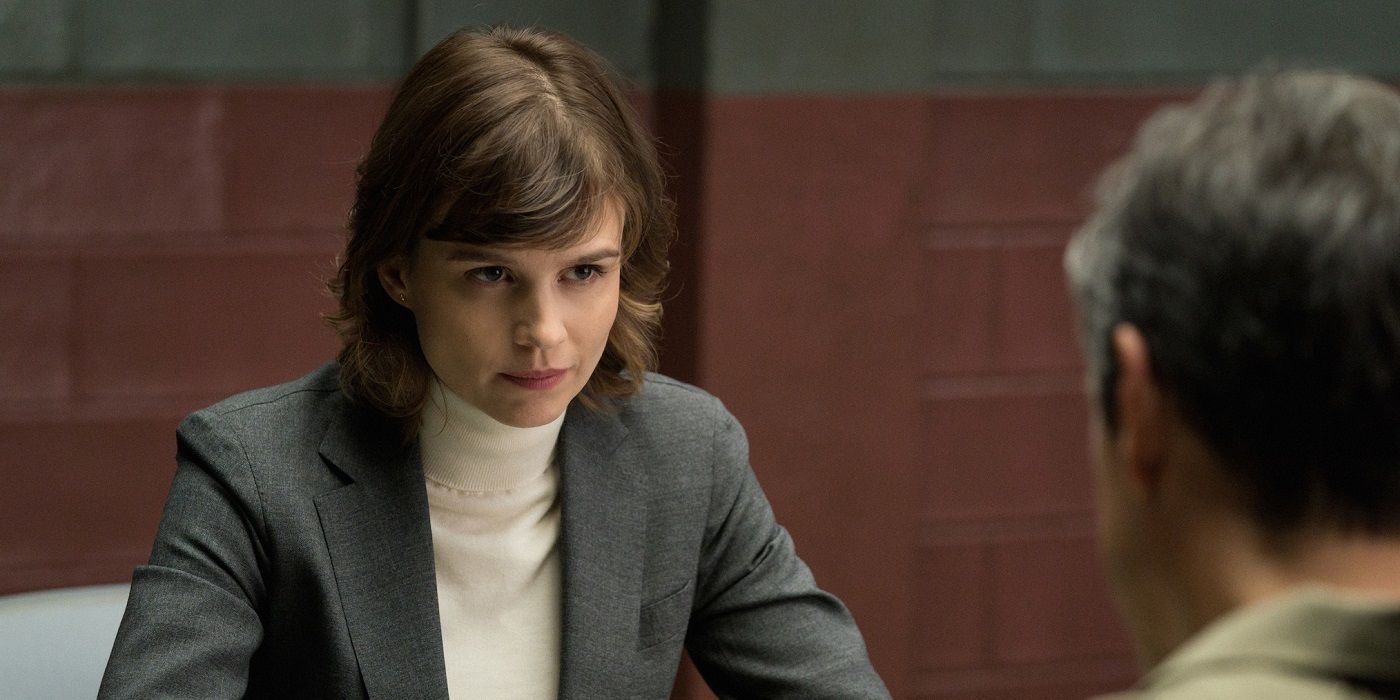The supernatural drama series Evil, now in its second season, has drawn a positive response from critics. While opinion on the series varies, reviewers have largely praised the series for its treatment of religious themes, witty writing, and strong performances. The strong reviews have helped establish the series as one of the most praised network television debuts in years and a modern, more religiously focused version of The X-Files.
Evil is a procedural drama about claims of demonic possession and other religious or supernatural occurrences which are investigated by the team of uncertain psychologist Kristen Bouchard (Westworld's Katja Herbers), devout priest-in-training David Acosta (Luke Cage star Mike Colter), and skeptical handyman Ben (The Daily Show alum Aasif Mandvi). In addition to the case of the week, the series includes longer story arcs and unresolved mysteries involving the sinister Leland (Person of Interest's Michael Emerson) and the core trio's personal lives. Evil aired its first season on CBS during the 2019/20 season, then moved to Paramount+ for its second season, which began on June 20.
Both seasons have achieved substantial critical acclaim. Evil has a score of 92% on Rotten Tomatoes and 77 on Metacritic. The series' nuanced depiction of religious faith and doubt in a modern context has earned plaudits from reviewers. The characters in Evil frequently go back and forth on whether or not a given event is evidence of divine inspiration or demonic possession or simply mundane illness. This creates a more nuanced and challenging portrayal of exorcisms and allegations of possession than The Conjuring and other popular horror movie franchises. Through its characters, especially Kristen, Evil depicts how many ordinary people struggle with religion or create their own modified belief systems. The A. V. Club's Saloni Gajjar highlights these themes in her review:
Evil is compelling because the trio’s conflicting ideologies are challenged with every case, especially as Ben and Kristen’s work finally catches up to them. [...] If Evil season one commented on the varying natures of evil, the sophomore season scrutinizes the innate fears that develop as a result, especially when the team is pushed by their adversary, Leland Townsend.
Richard Lawson adds in Vanity Fair:
In the Kings’ nimble hands, all of this demonry becomes a metaphor for the sickness of the American present day, particularly the ways in which the internet has smuggled horrible things past lax defenses and into our daily lives. The show’s most alarming suggestion is not that something bad is coming for us, but that we are all already terribly infected with it.
Evil's writing has also been praised for its sharpness and humor. The series is created by Robert and Michelle King, who similarly used the network procedural format to create critically-acclaimed works with The Good Wife and The Good Fight. Evil is full of clever dialogue, audacious visual gags, and the ripped-from-the-headlines stories that the Kings' previous shows were known for. Critics like IndieWire's Steve Greene have praised the series' ability to nimbly pivot between different tones and subject matter:
The deeper that “Evil” gets into its mythology, the more it feels like a magician offering an inside look at how they do their tricks. [...] Peel back the layers of CGI apparitions and simple effects flair (each episode begins with an intricate pop-up book motif) and you still have the show’s simple, tiny unsettling touches: a shriek coming from a garbled voice recording or a strange noise happening just out of sight or a mirror staring back with a sinister grin. They’re all threads in a bizarre tapestry that maybe doesn’t always make sense when looking at it up close. But step back for a full view, and there’s nothing else like it on TV.
The Pittsburgh Tribune-Review's Rob Owen also praised the show's skill at horror:
“Evil” is the rare show that’s both frequently scary — one jump-scare was enough that my reaction scared my dog sitting next to me on the couch — but in a generally sophisticated way. It’s not gruesome like “Hannibal” and the weekly cases keep “Evil” from spinning off into murky mythology.
The ensemble cast of Evil has also received critical praise. In particular, Katja Herbers has received acclaim for her portrayal of Kristen's struggles of faith, professionalism, and family, while Michael Emerson's sinister characters from Arrow and Lost have been one-upped by his demonically-inspired Leland. Evil also boasts a supporting cast full of great character actors such as Christine Lahti and Dylan Baker. Allison Shoemaker's season 1 review for RogerEbert.com highlighted the show's acting:
Herbers is excellent, and it’s on Kristen and that visceral performance that “EVIL” hinges, but this is no one-woman show. Colter, a winning if not always fascinating actor, is well-cast, open-hearted yet still a cypher, guided by the purest of intentions but stalked by personal demons (though they never seem to take the form one expects, literally or metaphorically).
In The New Yorker, Emily Nussbaum singles out Herbers for praise:
The cast is universally strong, especially Herbers, who, with her warm eyes and her air of wary dishevelment, makes Kristen feel strange and a little dirty, as if she were burying enormous, chaotic emotions. She’s particularly good in scenes with her four daughters, who keep tumbling onto the sofa with her, chatting and giggling, with an organic family sweetness.
Like the Kings' previous shows, Evil bucks the trend of heavily serialized drama while still being respected by critics and TV aficionados. The move from a broadcast network to a recently rebranded streaming service could prove challenging, but the positive reviews for the second season should help to bring more attention to one of television's most unique shows.


